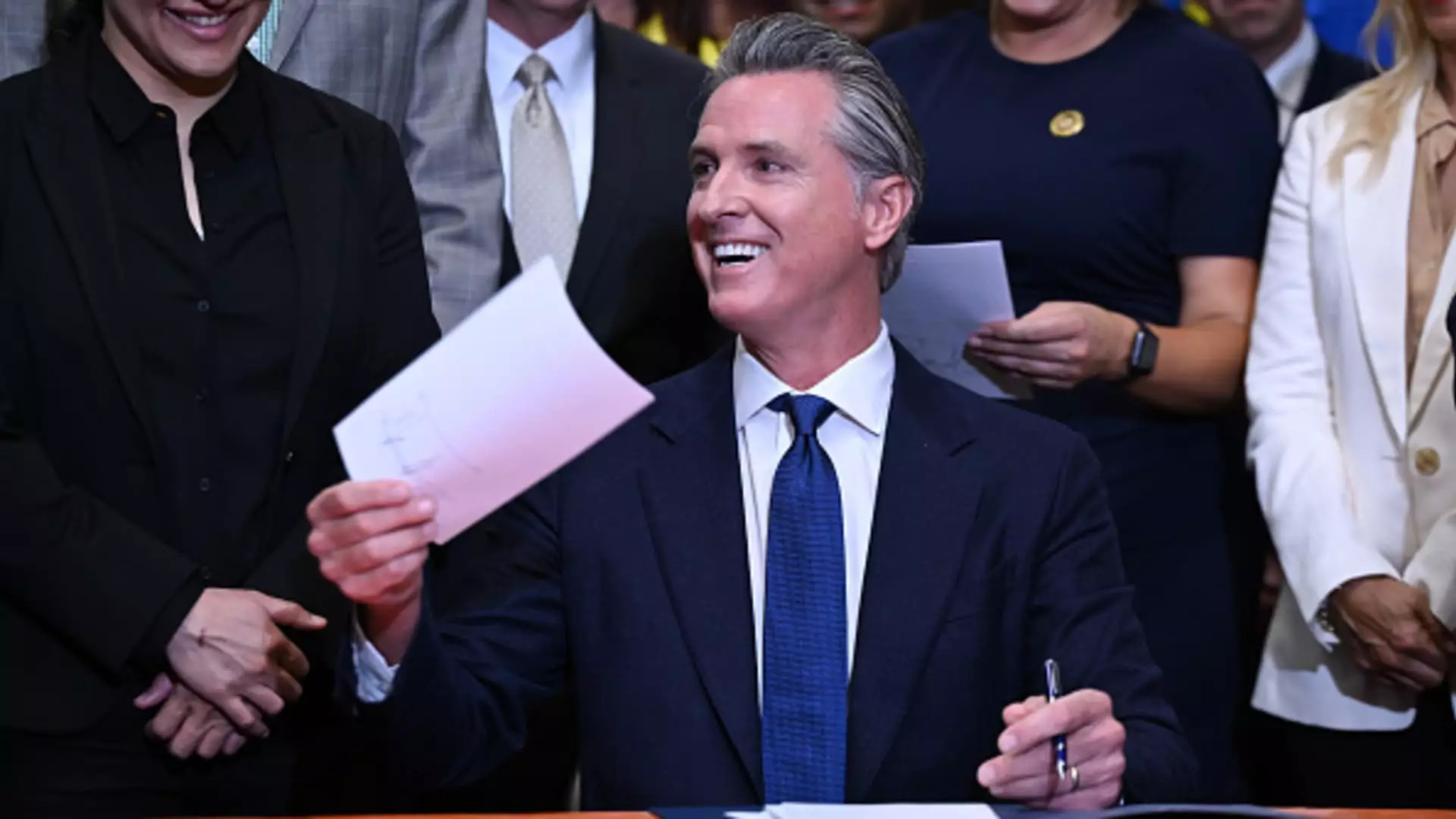California Governor Gavin Newsom has recently signed 10 new bills into law aimed at combating retail crime in the state. These new laws address issues such as shoplifting, theft from vehicles, organized theft, and the resale of stolen goods on online marketplaces. Retailers in California have been vocal about the impact of retail theft on their businesses, urging government intervention to address the growing challenge.
One of the bills in the new package, SB 1416, focuses on establishing stricter penalties for middlemen involved in organized retail crime rings. This bill was introduced in response to an investigation that exposed the activities of individuals like Michelle Mack, who made millions reselling stolen goods on platforms like Amazon. The new law aims to impose additional prison time and fines on those engaged in the sale, exchange, or return of stolen property, targeting the core operations of retail crime rings.
The presence of theft and organized retail crime rings like that of Michelle Mack’s “California Girls” has significantly impacted retailers in California. Lower profits, challenges in hiring and retaining staff, and a decline in the overall in-store experience have been attributed to these criminal activities. The commercial burglary and robbery rates in the state have been on the rise in recent years, with shoplifting also seeing an increase.
Law enforcement agencies like the California Highway Patrol’s Organized Retail Crime Task Force have been actively working to combat retail crime in the state. Since January, the task force has made 884 arrests and recovered over 250,000 stolen items worth more than $7.2 million. Additionally, retailers are advocating for federal intervention to address organized retail crime, with the National Retail Federation pushing for theft to be prosecuted as a federal felony.
While efforts to combat retail crime are necessary, some critics are concerned about the potential negative impact on marginalized groups. There are fears that the measures implemented to address retail crime may disproportionately harm vulnerable populations. As laws like SB 1416 and SB 1144 are put into effect, it is crucial to consider the broader implications and ensure that the enforcement is fair and just.
Another bill, SB 1144, focuses on preventing the trafficking of stolen goods on online marketplaces like Amazon. This legislation, introduced by State Sen. Nancy Skinner, aims to update compliance criteria for high-volume third-party sellers and facilitate the filing of civil charges against online platforms selling stolen goods. By targeting the online resale of stolen goods, the law seeks to reduce the prevalence of stolen merchandise on digital marketplaces.
The new laws signed by Governor Gavin Newsom to combat retail crime in California represent a significant step towards addressing the challenges faced by retailers. While these measures are essential in protecting businesses and consumers from theft and organized crime, it is imperative to closely monitor their implementation to ensure that they are effective and do not disproportionately impact vulnerable communities. By continuing to work together with law enforcement, legislators, and retailers, California can strive to create a safer and more secure retail environment for all.

Leave a Reply